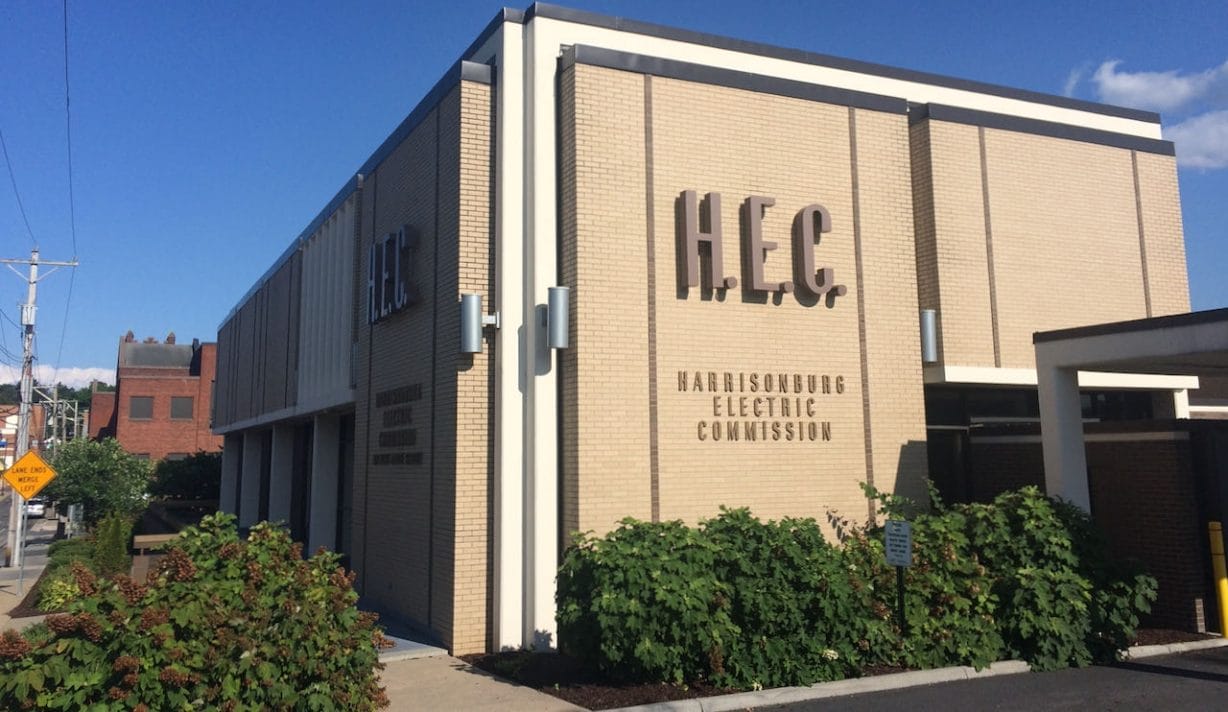
By Eric Gorton, senior contributor
More than 60 million people in 13 states and Washington, D.C. were able to keep their lights on and electric heat running during an arctic blast on Dec. 23 and 24, partly due to the efforts of the Harrisonburg Electric Commission.
HEC ran nine diesel-fueled generators for about 20 hours on those days when temperatures plummeted into the single digits and energy demand soared, General Manager Brian O’Dell said in an email.
“I was proud of our employees and the personal sacrifices they were willing to make in the interest of HEC under obligations that we had made to generate power in emergency conditions,” he said in the email.
O’Dell said eight HEC employees, including himself, worked about 110 hours of overtime to start the generators and auxiliary systems and to monitor equipment, fuel and systems. They were also prepared to respond to any mechanical or electrical issues that arose while the generators were in use, he said.
After running the generators from 6-11 p.m. on Dec. 23, HEC was asked to run them again the next day. “We ran from 6 a.m. until about 7:30 p.m. on Christmas Eve,” O’Dell told the HEC board at its Jan. 24 meeting. “That’s a long time. Normally we run for an hour or two hours.”
During non-emergency times, HEC runs its generators to lower transmission costs, O’Dell said.
HEC was required to run the generators on Dec. 23 and 24 due to a commitment to PJM, a regional transmission organization that coordinates the movement of wholesale electricity in all or parts of 13 states and the District of Columbia. Almost all of Virginia is within PJM territory.
“We were able to run our generation as promised as far as being a resource for PJM,” O’Dell told the board.
When HEC runs its generators, the power supplies the local HEC grid. That reduces Harrisonburg’s need for power from the regional grid, O’Dell said, and helps PJM maintain “grid stability” when generation is in short supply.
O’Dell told the board that PJM was able to avoid rolling blackouts, something other regional power organizations, including Duke Energy and the Tennessee Valley Authority, could not do during the Christmas cold snap. But it was a close call.
PJM estimated the load would peak at 126,000 megawatts for its entire region and had secured commitments for 155,000 megawatts of generation. “They felt like they were pretty comfortable with what they had secured,” O’Dell said.
“As it turns out, there were a lot of resources that were unable to perform and I think there were about 46,000 megawatts that were unable to perform. You had fuel shortages, you had mechanical failures, some generators couldn’t run because of conditions, limitations,” he told the board. “PJM, even though they were on the ragged edge, they were able to maintain stability.”
Despite having a lot of load history data, PJM’s forecasted peak just before Christmas turned out to be about 10,000 megawatts too low. “The load never really came down from Friday night into Christmas Eve morning,” O’Dell told the board. “It was a real anomaly if you look at load shapes and expectations.”
HEC received a $750,000 credit on its December power bill for aiding PJM, but also incurred additional expenses, including overtime, fuel for the generators “and a few meals,” O’Dell said in the email.
During his report to the board, he joked, “Next month when you look at the check list and you see Southern States, we didn’t buy them – we just bought fuel from them.”
O’Dell said HEC had enough fuel to get through Christmas Eve, but anticipated having to run the generators on Christmas Day. Southern States had two trucks make two roundtrips to Richmond on Dec. 24, delivering 30,000-40,000 gallons of ultra-low sulfur diesel fuel. The deliveries cost HEC about $150,000.
Shortly after getting the generators running on Christmas Day, HEC was informed they were not needed.
“That’s my Winter Storm Elliott story,” O’Dell told the board.
Journalism is changing, and that’s why The Citizen is here. We’re independent. We’re local. We pay our contributors, and the money you give goes directly to the reporting. No overhead. No printing costs. Just facts, stories and context. We’re also a proud member of the Virginia Press Association. Thanks for your support.














